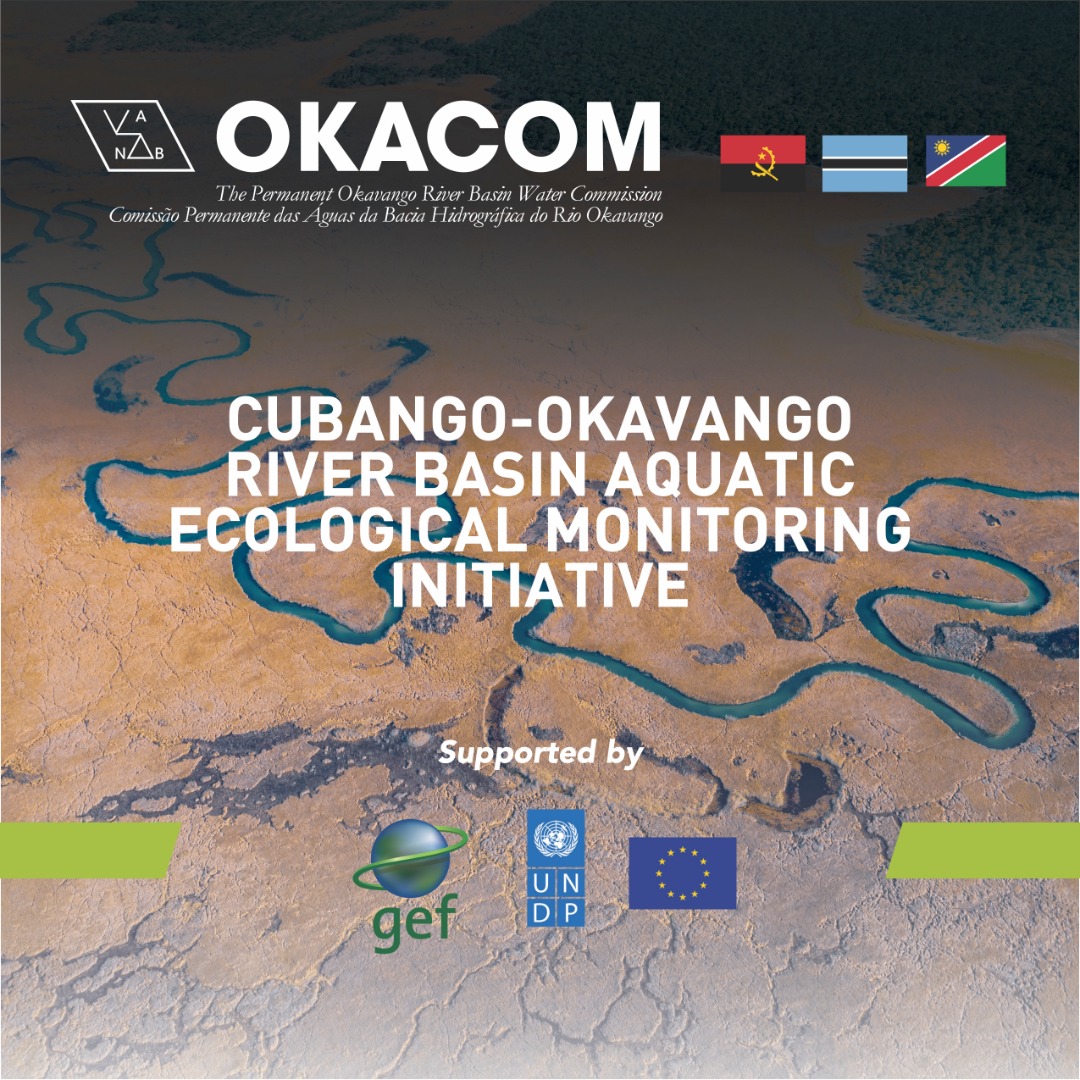- Home
- About Us
- Background
- Mandate
- Cubango Okavango River Basin
- Governance
- Strategy and Approach
- Member States
- Our Work
- Partners
- Climate Resilient Infrastructure Development Facility (CRIDF)
- European Union (EU)
- Southern African Development Community (SADC)
- Swedish International Development Cooperation Agency (SIDA)
- The World Bank (WB)
- United Nations Development Programme (UNDP)
- United States Agency For International Development (USAID)
- Resources
- News and Events
- Opportunities
- Contact Us
- FAQ's
- Connect With Us
- i
- t
- f

Aquatic Ecological Monitoring in the Cubango-Okavango River Basin
Friday, June 5, 2020

The long-term beneficial use of the shared Cubango-Okavango River Basin (CORB) waters depends upon the joint sustainable management of its water and land resources. The CORB which is considered relatively undisturbed, is one of the Basins with limited long term environmental monitoring data except for hydrological flows and sporadic water quality monitoring data characterized by huge gaps and inconsistences. To address the lack of data and information, OKACOM is facilitating the development a comprehensive Environmental Monitoring Framework (EMF) for the CORB which includes aquatic ecological monitoring. Other important environmental monitoring components of the CORB EMF are water quality, hydrological flows, sediment transport and groundwater.
Towards an Aquatic Ecological Monitoring in the CORB
The OKACOM aquatic ecological monitoring initiative is supported by the EU Programme and the United Nations Development Programme (UNDP) with financing from Global Environment Facility (GEF) Support to the Cubango-Okavango Strategic Action Programme (SAP) Implementation. The initiative uses macro-invertebrates and diatoms as vital indicators of the state of the ecological and environmental health of the river systems in the CORB and involves the OKACOM Technical Committees on Water Resources (WRTC) and, Biodiversity and Environment (BETC) and other stakeholders and partners who have identified monitoring parameters and potential transboundary monitoring sites. Subsequent to the initial identification of potential sites, a technical team undertook a ground truthing expedition in August 2019 to verify and propose the adoption of the identified locations as the CORB transboundary ecological monitoring sites.
These sites are earmarked to support the establishment of a Basin wide ecological monitoring network for the CORB. The initial data will provide baseline that informs development of a Basin wide ecological monitoring framework and subsequent monitoring plans. The ecological monitoring framework will provide guidance on the development of site-specific ecological monitoring plans and protocol therein. The framework will further provide guidance on the definition the monitoring frequency, data collection methods, desirable equipment, data analysis and storage, and aquatic ecological information determination plans. Additional key components of the EU Programme include training of technical staff from member states and procurement of equipment, translation and printing of in-field monitoring guides.
Benefits of Aquatic Ecological Monitoring
Data and information that will be generated from the planned aquatic ecological monitoring programmes will feed into the CORB Decision Support System, which will generate information which reflects the ecological and environmental health of the river systems within the Basin at any given time. The ecological monitoring data and information will enable water resources managers, researchers and policy makers to detect potential negative impacts of various development and livelihoods activities. Additionally, water resources managers within the CORB will be able to provide early warning and advice development champions and practitioners on the potential impact of certain socio-economic and livelihood activities.
Thematic Areas & Activities
News
subscribe for news notification by email
Photo Credit: Kostatin Luchansky, National Geographic, Okavango Wilderness Project.

